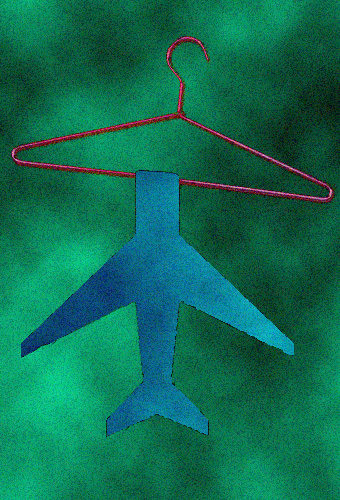A magazine where the digital world meets the real world.
On the web
- Home
- Browse by date
- Browse by topic
- Enter the maze
- Follow our blog
- Follow us on Twitter
- Resources for teachers
- Subscribe
In print
What is cs4fn?
- About us
- Contact us
- Partners
- Privacy and cookies
- Copyright and contributions
- Links to other fun sites
- Complete our questionnaire, give us feedback
Search:
A funny thing happened on the way to the computer
Laugh and the world laughs with you they say, but what if you're a computer. Can a computer have a 'sense of humour'?
Interestingly, computer generated jokes can do more than give us a laugh. Human language in jokes can often be ambiguous: words can have two meanings. For example the word 'bore' can mean a person who is uninteresting or could be to do with drilling ... and if spoken it could be about a male pig. It's often this slip between the meaning of words that makes jokes work (work that joke out for yourself). To be able to understand how human based humour works, and build a computer program that can make us laugh will give us a better understanding of how the human mind works ... and human minds are never boring.

Many researchers believe that jokes come from the unexpected. As humans we have a brain that can try to 'predict the future', for example when catching a fast ball our brains have a simple learned mathematical model of the physics so we can predict where the ball will be and catch it. Similarly in stories we have a feel for where it should be going, and when the story takes an unexpected turn, we often find this funny. The shaggy dog story is an example; it's a long series of parts of a story that build our expectations, only to have the end prove us wrong. We laugh (or groan) when the unexpected twist occurs. It's like the ball suddenly doing three loop-the-loops then stopping in mid-air. It's not what we expect. It's against the rules and we see that as funny.
Artificial intelligence researchers who are interested in understanding how language works have started to look at jokes as a way to understand how we use language. Graham Richie is one such researcher, and funnily enough he presented his work at an April Fools' Day Workshop on Computational Humour. Richie looked at puns: simple gags that work by a play on words, and has created a computer program called JAPE that generates jokes.

How do we know if the computer has a scene of humour? Well how would we know a human comic had a sense of humour? We'd get them to tell a joke. Now suppose that we had a test where we had a set of jokes, some made by humans and some by computers, and suppose we couldn't tell the difference? This is called a Turing Test after the computer scientist Alan Turing. If you can't tell which is computer generated and which is human generated then the argument goes that the computer program must, in some way, have captured the human ability.
So let's finish with a joke (and test). Which of the following is a joke created by a computer program following Richie's theory of puns, and which is a human's attempt? Will humans or machines have the last laugh on this test?
More Stuff
Victorian Parlour Games Vote on Disappearing Technology Future Human Competition Cartoon Drawing Programs More Computers and Language: The last speakerA Limerick from the cs4fn Competition
A computer was heard to complain
I have trouble with my new AI brain
I have no sense of humour
But twas only a rumour
I told jokes and it laughed like a drain.


